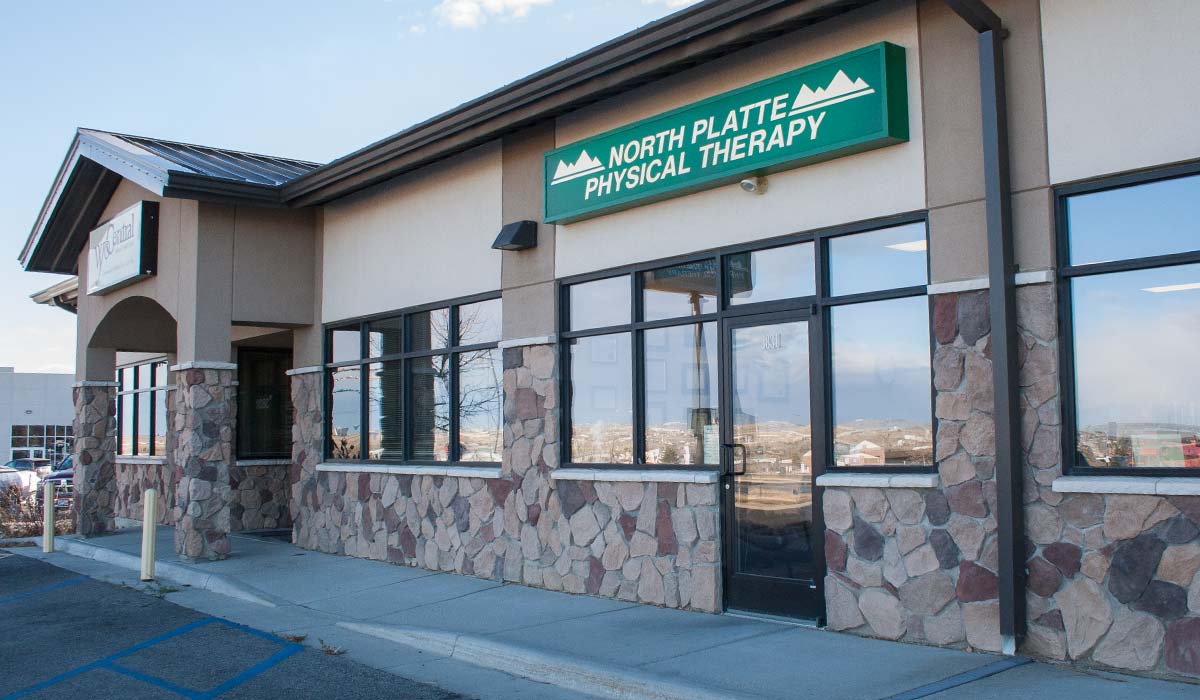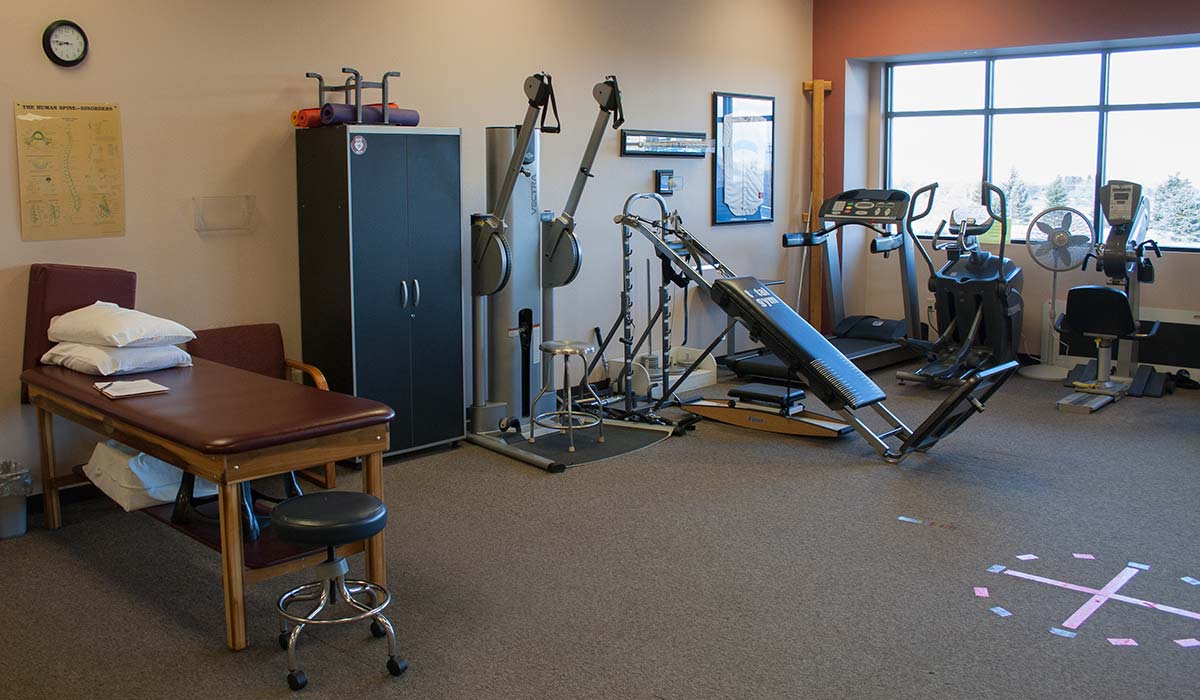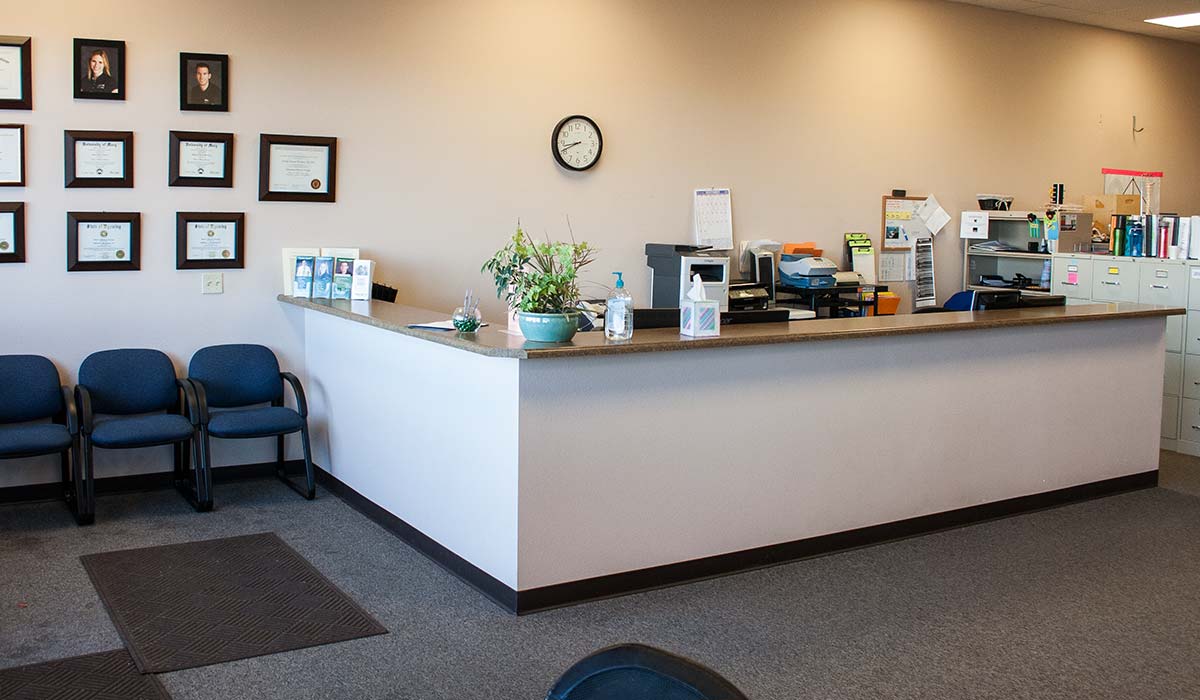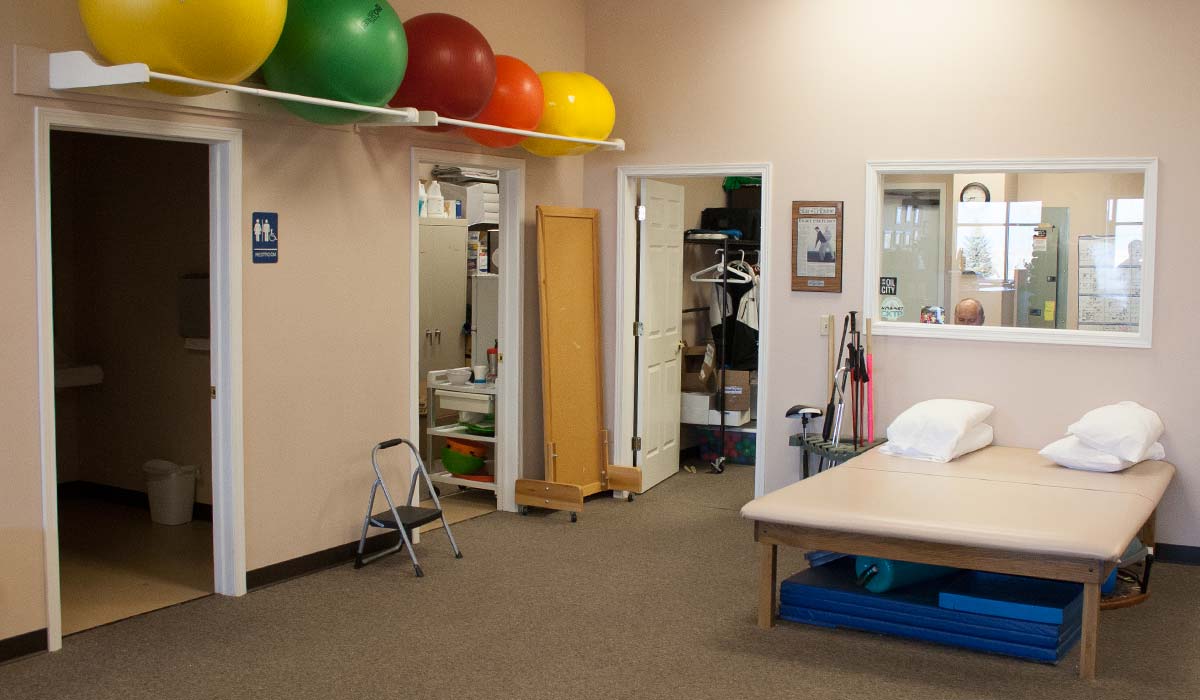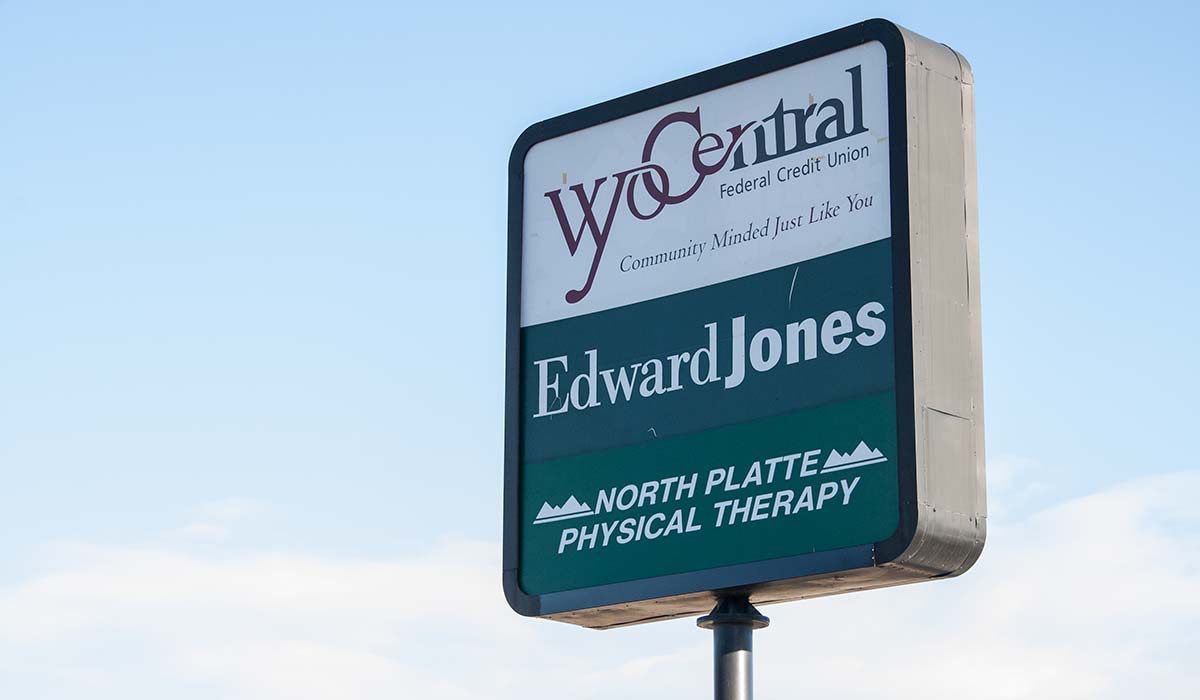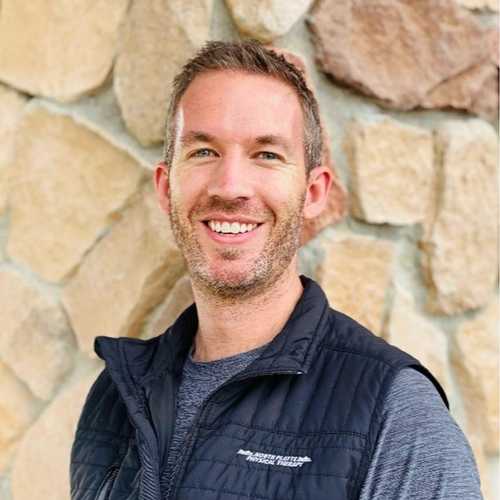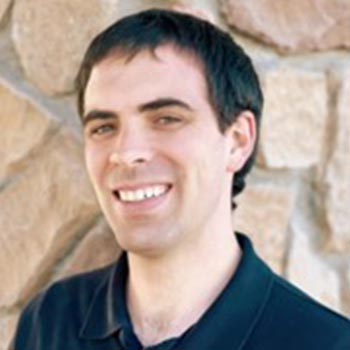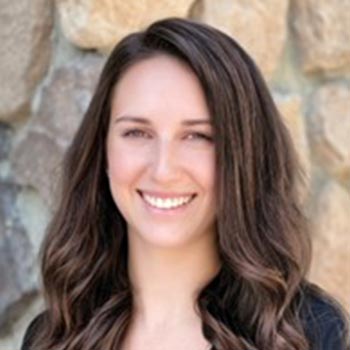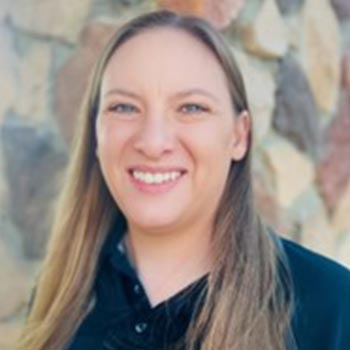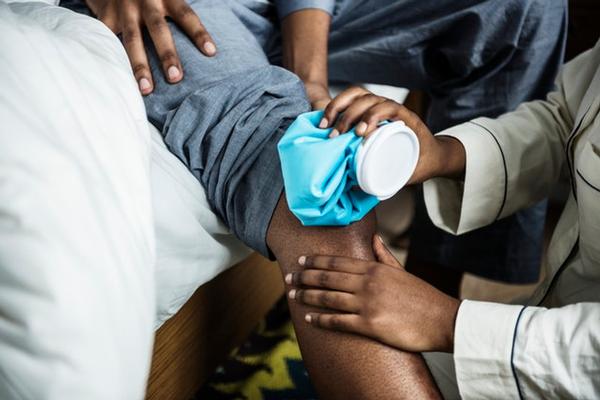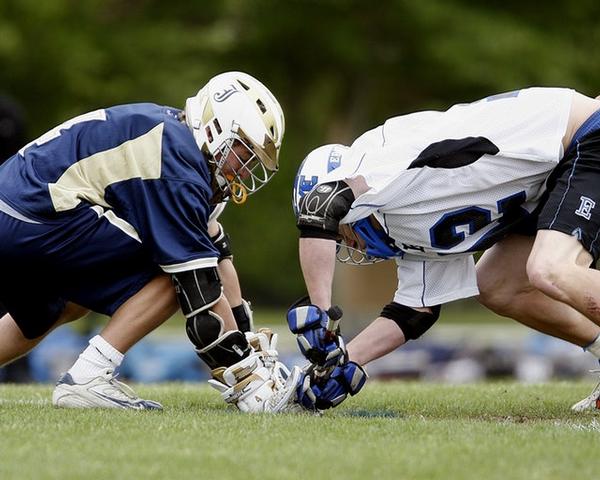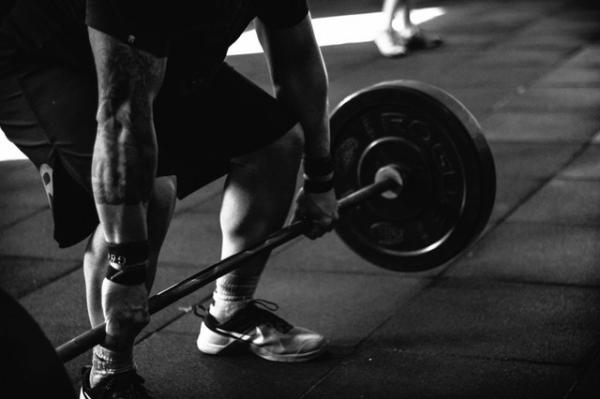North Platte Physical Therapy - Casper (West)
The Casper West clinic has been serving the needs of the surrounding community since 2010. This clinic along with our Casper East clinic continually strives to exceed the expectations of our patients. Our clinics are patient-focused and allow our patients to collaborate with their therapist on the optimal care for each individual. We provide this peak level of care in an energetic and enjoyable atmosphere.
We are dedicated to providing the best orthopedic care to central Wyoming. Our staff specializes in spine and extremities. We use multiple manual therapy and exercise treatment philosophies and techniques for treating back, muscle, joint, nerve and tendon disorders. North Platte Physical Therapy provides comprehensive physical and occupational therapy services to our orthopedic, pediatric, and geriatric patients. We have an excellent functional balance re-training program and fall prevention program. We also work with athletes and sports medicine patients.
Location Details
Address: 3831 Denis Drive #200, Casper, WY 82604
Hours: Mon - Fri 8AM - 5PM
Fax: 307-234-9074
Interested in scheduling at our East location? View Casper East Details
Services Offered
- Arthritis Pain
- Back Pain
- Back School Presentations
- Balance and Vestibular Rehab
- Biofeedback
- Biomechanical Gait Analysis
- Body Mechanics Training
- Chronic Pain
- Cupping Therapy
- Custom Foot Orthotics
- Custom Splinting
- Ergonomic and Worksite Evaluation
- Fine Motor Dexterity
- Golf Swing Analysis
- Graston Techniques
- Hand Therapy
- Headache
- Kinesio taping
- Modalities
- Myofacial Techniques
- Neck Pain
- Neurological Services
- Orthopdedic Clinical Specialist, OCS
- Orthopedic Service
- Pediatric Therapy
- Pool Therapy
- Post Cancer Treatment
- Pre/Post Surgical Rehab
- Return to sport exercise programs
- Running Injuries
- Self-care skills
- SFMA - Selective Functional Movement Assesment
- Spine Care
- Sports Medicine
- Stroke Rehabiliation
- Tendonitis
- TMJ
- Torticollis
- Trigger Point Dry Needling
- Vestibular Rehabiliation
- Women's Health
- Work Hardening/Conditioning
- Work Injuries
- Wound Care
Latest News & Info
Knee Anthroscopy Explained by Physical Therapy in Cheyenne, WY
November 7, 2018
What is a Knee Anthroscopy?Â
A knee anthroscopy is a type of non-invasive surgical procedures to help relieve pain on and around the joint of the knee. The reason why it is called an “anthroscopy†is because a small camera, called an “anthroscope,†is placed into the knee after making a small incision. This is incision is just large enough to place a small camera through. From there, the surgeon can use special tools to go in and make various fixes to issues within the knee. It is also an excellent way to diagnose larger issues. The procedure itself is fairly quick and there are rarely common issues and complications. Knee anthroscopies are one of the top ways surgeons help those with knee issues thanks to their low risks and quick recovery time.Â
Common Reasons for Procedure
From there, a surgeon can review the inside of the knee and look for all types of issues, including:Â
- ACL reconstruction
- Bone fragments
- Cartilage issues or transfers
- Diagnosing larger issues such as arthritis
- Fractures
- Joint pain
- Patella repair
- Swelling
- Torn ligaments or meniscus
When going in for anthroscopic knee surgery, your surgeon will help make you comfortable. Given the nature of the surgery, it may often be a simple outpatient procedure that does not require an overnight stay in the hospital. By not having to open the entire knee to operate, you will enjoy being able to get back to your day-to-day routine in no time. Because it does not have as much stress on the knee as traditional surgeries, it is one of the best ways to treat an issue.Â
Using Quality Physical Therapy to Recover
Even though knee anthroscopy surgery is not as intense as a traditional open-knee procedure, it is best to work with a local physical therapist on your recovery and rehabilitation program. A physical therapist will create a customized plan specialized plan to help you regain proper movement. It is best to utilize a physical therapist as opposed to exercising on your own to help you with a successful recovery. Without the help of an expert, you could re-injure yourself or create more damage undoing all the work that was done.Â
Have you undergone a knee anthroscopy and are seeking a local physical therapist to help with recovery? Or planning for a procedure? North Platte Physical Therapy is your go-to physical therapist, experienced with common surgeries. We’ll create a customized plan for you to help to recover fast and avoid future injuries. Our experienced staff will create the perfect rehabilitation plan to help you get back to normal activities and movement. Contact us today to schedule an appointment near you.Â
Casper Physical Therapy Explains High School Football Injuries
October 31, 2018
Â
Most Common Types of Injuries
Given that football is a contact sport, injuries may occur. Some of the most common injuries experienced by student athletes include:
Achilles tendonitis: Swelling can occur when the Achilles tendon (back of the ankle) is strained.Â
Fractures: Contact or quick movements can lead to fractures in the hands, legs, and more.Â
Knee: Occurring from rapid twisting movements or contact, ligaments in the knee can be stretched or torn.Â
Rotator cuff: The rotator cuff is a primary support within the shoulder. When strained, it can lead to radiating arm pain.Â
Strains: Strains occur when muscles in an area have been overly stretched. They can be painful when overly extended or if they tear.Â
Sprains: Sprains arise when ligaments, which connect muscles to bones, are negatively impacted. They can be overstretched or tear.Â
Handling Concussions
Concussions are brain injuries, commonly due to an impact to the head, as well as quick, rapid movements. These rapid movements cause the brain to move around, causing issues. This movement can cause bruising or problems with crucial blood vessels. Upon receiving a blow, a student-athlete should be checked out as soon as possible. Signs of a concussion include:Â
- Blurred vision
- Brain fog
- Dizziness
- Fatigue
- Headaches
- Loss of consciousness
- Nausea
- Slurred speech
- Tinnitus
- Vomiting
The go-to way a student-athlete needs to recover from a concussion is to rest. Many wonder, “is it safe to sleep if you have a concussion?†If symptoms are minimal, it may be fine. It is best to go by the advice of a doctor to be certain. In extreme cases, falling asleep with a concussion can lead to a loss of consciousness.Â
Recovery and Physical Therapy
For injured student football players, it is imperative to see a local physical throughout the recovery process. A premier physical therapist will ensure your student takes proper measures for a swift and successful recovery. From there, physical therapists can help the student improve their sport. This can be done by teaching various stances and techniques to avoid injuries. Students that have not sustained an injury will still benefit from training with a physical therapist to avoid getting hurt in the future. For many students, an injury can be career ending, which is unfortunate before their actual athletic career really begins.Â
If your child has sustained an injury playing football, North Platte Physical Therapy’s sports medicine team will aid in their recovery. Specializing in student-athletes, we can help with recovery as well as athletic training. This will help your student avoid injuries in the future and become a stronger, quality athlete. Contact us today to schedule an appointment.Â
Â
What Your Physical Therapist Has to Say About Keeping Knee Injuries From Occurring
October 17, 2018
Maintain a Healthy Weight
Even just the stress of walking can harm your knees if you are carrying around extra pounds. Then if you had sports into the mix, you are really adding to the burden your knees must handle. Keep your weight at an appropriate level for your height to keep your knees from being unduly stressed.Find Low-Impact Activities
If you are carrying around a few extra pounds that you want to lose, or if your knees have a tendency to be tender, sticking to low-impact activities can really help the impact on your knees while still keeping you active. If you are looking for cardio options, there are plenty of machines at the gym, such as the elliptical, that can give your heart a good workout and keep your knees protected.Warm Up Before and Stretch After Each Work Out
Both of these are easy to skip when you are eager to get started competing or working out, but both are important to your routine. Warming up will loosen up muscles and tendons, making you less prone to injury. Stretching after your workout will help with mobility, and also help to protect you from injury.Wear Good Quality Shoes
If you are on your feet a lot—whether for sports or for everyday life—wear the right shoes for the job. If you stand a lot for your job, the proper footwear can protect your knees as well as your back. They can also keep you more comfortable all day. If you are into a sport such as running, go to a professional running store so they can recommend the proper shoe. This article has good information on appropriate shoes for both walking and running: 10 Best Walking and Running Shoes for Bad Knees and OA Knee Pain.Strength Train
Strength training—as long as you are using proper form—can strengthen the muscles and tendons in your legs, making less prone to injury. Have a coach or personal trainer give you training on proper form as this is essential to prevent injuries.ÂSeek Physical Therapy When Needed
Sometimes injuries and strains happen, and when they do, don’t hesitate to seek out the help of a physical therapist to help you get past the pain. You can find out more about seeing a physical therapist and learning what to expect by reading here.At North Platte Physical Therapy, we want our patients to have healthy knees and live a pain-free life. If you have suffered an injury, we invite you to contact North Platte Physical Therapy to learn more about how we can help you recover. Our staff is well known throughout Wyoming because of our strong commitment to our patients. We can fulfill comprehensive physical therapy services, and we look forward to creating a custom a treatment plan based on your needs. Contact us today!
Â
